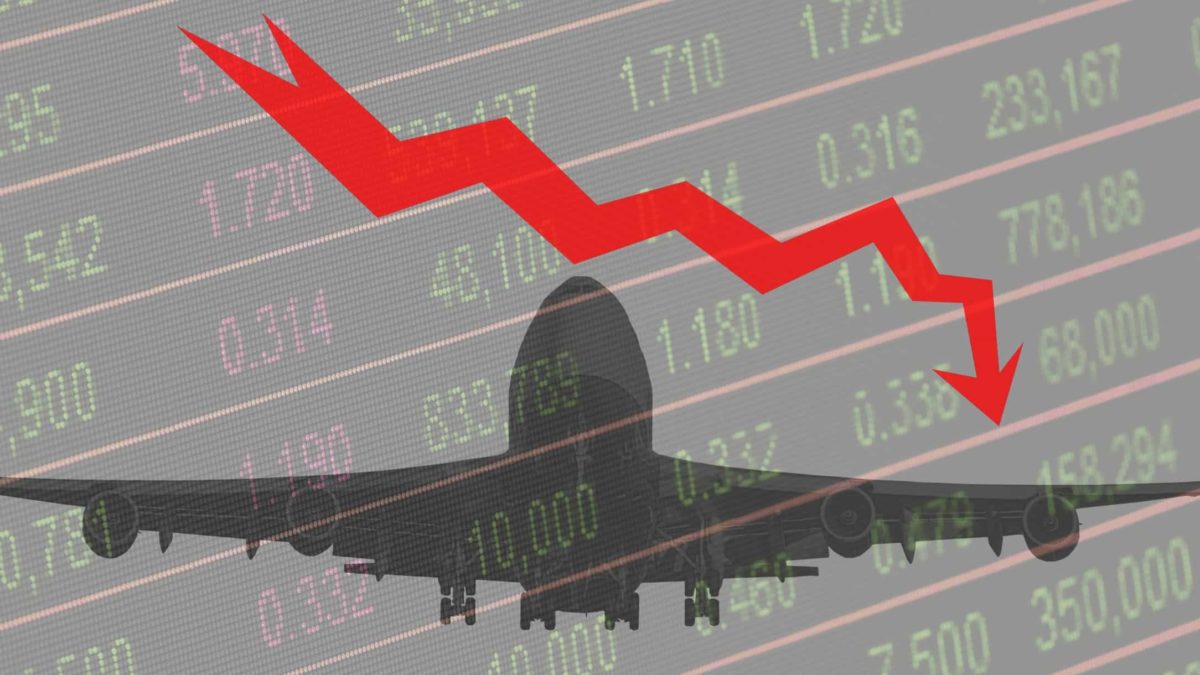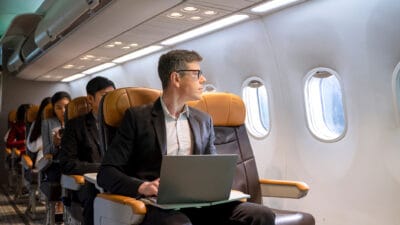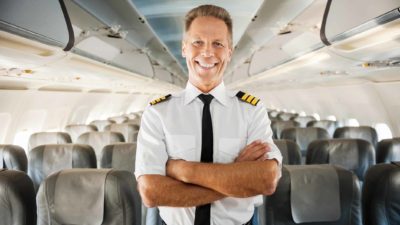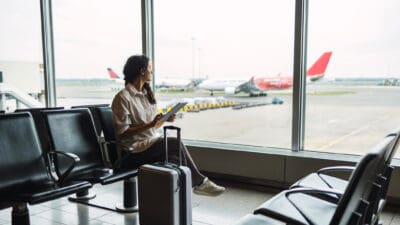Shares in airline operator Qantas Airways Limited (ASX: QAN) are rangebound today and are trading around 1% down at $4.90.
It's been a difficult year in 2021 for Qantas, having come off a low base in 2021 amid the pandemic-induced lockdowns of 2020/21.
Today the company announced it will purchase blended sustainable aviation fuel (SAF) from next month, helping to reduce its carbon emissions by around 10% for its flights from London.
Whilst not price-sensitive at all, let's take a look at what the flying kangaroo had to say today.
What did Qantas release?
Qantas advised it will purchase the SAF for its Kangaroo route flying direct from Australia to London.
Both Qantas and subsidiary Jetstar have already flown several demonstration flights using SAF, most notably a flight across the Pacific Ocean in 2018 that was powered by biofuel derived from mustard seeds.
However, this new agreement is the first time an Aussie airline will purchase SAF on an ongoing basis for regular scheduled services, Qantas says.
The fuel will be produced with certified bio feedstock from used cooking oil and other waste products. This is then blended with normal jet fuel to create the SAF derivative.
Specifically, the company has signed an agreement with petroleum giant BP to purchase 10 million litres of SAF in 2022 with an option to purchase up to another 10 million litres in 2023 and 2024 for flights from Heathrow Airport.
In total, this litreage represents up to 15% of Qantas' annual fuel use out of London, according to the release.
Qantas says it is also in discussions about accessing SAF at its other overseas ports, such as Los Angeles, and recently joined other airlines in signing a memorandum of understanding to use SAF for flights from San Francisco from 2024.
These agreements are "crucial to bringing the cost of SAF down, which can be several times more expensive than traditional jet kerosene".
Management commentary
Speaking on the media release, Qantas Group Chief Sustainability Officer, Andrew Parker said:
We know that climate change is incredibly important for our customers, employees and investors and it is a major focus for the national carrier as we come out of a difficult couple of years. Zero emission technology like electric aircraft or green hydrogen are still a very long way off for aviation, and even further away for long haul flights like London to Australia. SAF and high quality carbon offsetting are therefore critical on the path to net zero.
Parker also added:
Aviation biofuels typically deliver around an 80 per cent reduction of greenhouse gas emissions on a lifecycle basis compared to the jet fuel it is replacing and is the most significant tool airlines have to reduce their impact on the environment.
The Qantas share price has slipped over 3% into the red in the last 12 months, however, has reversed course and is up more than 1% this year.
Yet, despite this, Qantas remains deep out of the money in the last month of trading, plunging over 13% in that time.







